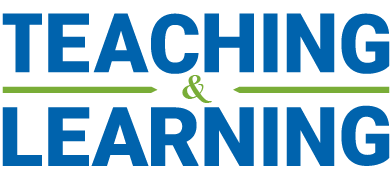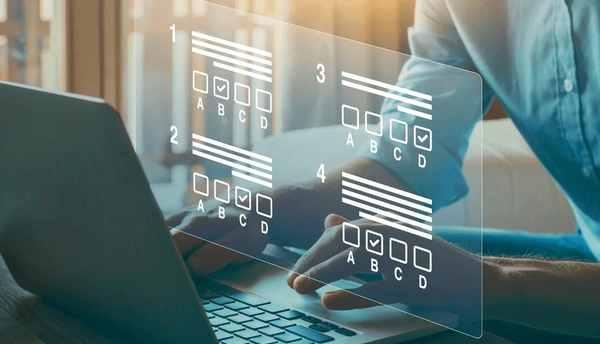With the exam period fast approaching, here are some final quick reminders to assist you in preparation for your final exams; these points are the most critical ways to uphold academic integrity during final assessments. Below, we provide general guidance that is further detailed according to the exam format (in-person or online).
Please note that:
- No additional changes are permitted to the final exam schedule including the mode of the final exam (e.g., in-person courses must have in-person final exams unless the instructor has made prior arrangement through the area staff with the ADA office according to the disruption course completion option instructions).
- Remote proctoring is not permitted, but Lockdown Browser is encouraged to be used for any online exams. Please note that although the vendor for Lockdown Browser provides a remote proctoring service, this has been disabled as per York policy and is separate from the other functions of Lockdown Browser.
- Artificial Intelligence (e.g. ChatGPT): according to York’s Senate Policy on Academic Honesty, using text-, image-, code- or video-generating AI tools to complete academic work without the instructor’s knowledge or permission breaches academic honesty. More specifically, using text-generating tools (such as ChatGPT) is cheating (Senate Policy, section 2.1.1), and using image-generating tools (such as DALL-E) is plagiarism (Senate Policy, section 2.1.3). This applies to the various possible uses of AI tools, such as using text-generating AI as the author of an entire response, a copy editor, or a ‘personalized‘ reference tool akin to Google or Wikipedia.
- Instructors are the lead invigilators of their exams. Please plan to be present and focused on active invigilation during the exam even if you have the support of additional invigilators.
Accommodation Requests
Students with formal accommodations related to tests and exams (for example, those who require additional time to complete an exam) must have registered with Student Accessibility Services before the exam period. Please remind students seeking accommodation for exam writing to register or renew with SAS and to request an alternate exam to ensure they can write the exam with the proper support. Arranging alternate exams or accommodations is ultimately the responsibility of students.
In-person Exams
-
- Most importantly, please clearly communicate your expectations of students writing the exam to your students.
- In short, explain the exam procedure before the exam starts (i.e. post instructions to Canvas now and then repeat at the beginning of the actual exam).
- Things like “all phones must be deposited at the front desk with the professor”, “absolutely no materials are allowed on the desk”, “all bags must be left at the front”, etc. are best communicated in writing and ahead of time.
- Use question formats where copying is difficult (essay style, scramble order of answers, don’t use last year’s question, for example).
- Have students stand up and check themselves head to toe to ensure they have no unauthorized materials on them or on the desk.
- Many infraction reports and later grade appeals from the affected student originate at this juncture: instructor finds material (e.g., phone, calculator, paper, etc.) on the student, student claims no clear request was made to leave this particular item somewhere, instructor reports infraction, student claims material was unrelated to exam and a big investigation ensues.
- Please note that this term, digital YU-Cards, which include a photo, are accepted as a form of identification. Invigilators have been informed of the process of checking the authenticity of digital YU-Cards. However, if you would like to familiarize yourself further with the process of authenticating this identification mode, please see Appendix A.
- It is recommended that all materials should be stored in closed backpacks or other bags, which ideally are left at the front of the room if possible.
- Consider asking students to sign an Academic Honesty Statement before taking the exam (e.g., on the exam’s cover sheet). This act would remind students to be mindful about the proper exam taking process.
In-person Exams with a Laptop
- Remind students in advance that they need to bring their devices fully charged and with additional battery pack, if available. Not all exam spaces are equipped to allow every student to plug in a device simultaneously. To avoid a situation in which students cannot finish the exam or lose time due to battery deficiency, please remind them before the day of the exam to ensure that their device has adequate battery life for the exam duration.
- For more details regarding digital exams, please see Appendix B.
Academic Infractions
Despite your very best efforts, some of you will have to deal with academic honesty infractions. What to do in such a situation may not always be entirely clear to all. Therefore, here is a summary of the key procedural steps. The link above offers more details. There are in essence two scenarios:
“Something is happening here, but what it is isn’t exactly clear.”
What are your options?
- Say something to the entire class about maintaining silence or keeping their eyes on their own paper
- Speak to an individual or cluster, indicating that their behaviour appears improper and that they will be watched closely
- Move one or more students to a different location in the room (‘up front’ often works)
You (or the invigilator) “can see [it] clearly now”, cheating is (very likely) occurring:
- Importantly, students are allowed to complete the examination if a breach is suspected.
- If you suspect cheating is occurring, document as much detail of the alleged incident as possible, including:
-
- The exact time of the suspected incident
- Which section of the exam the suspected student(s) are working on
- Seating arrangements of suspected student(s) and those nearby
- Images or written descriptions of suspected infringing materials such as open websites, crib sheets, etc.
- NB: If documenting these elements will disrupt other students, the suspected student(s) can be moved (i.e., to the front of the class) to have devices or materials inspected.
- Any unauthorized materials (e.g., crib sheets) should be taken from the student[s] immediately.
- The students involved should be asked to remain in their seats at the end of the examination. At this time, their examination materials should be collected and identified by the instructor or invigilator. The instructor and/or invigilator should make notations to assist in documenting what was observed if they have not already.
- If an invigilator identifies the matter, the matter should be reported to the instructor at the earliest possible time. An Exam Incident Report Form should be submitted to the instructor soon after that (please see tab onExam Procedures).
- The instructor shall assess the situation and if persuaded that cheating has taken place, the instructor should:
- Notify the students that the matter is being turned over to the Associate Dean Academic and
- Submit a written report and supporting documentation (exam materials, crib sheets, indications of copied sections if that was the case) to the Associate Dean.
- No examination grade should be entered until the matter has been heard by the Associate Dean and a resolution of the academic dishonesty charge has been concluded.
Getting Technical Help During Your Exam
If you require support, contact the Schulich IST Helpdesk. They can be found on the 3rd floor of the Seymour Schulich Building, and their opening hours can be found here. You can also reach the Helpdesk at (416) 736-5824 or in advance via email at askit@yorku.ca.
For urgent exam support,
please call the Help Desk at 416-736-5824
As always, we are so grateful for your efforts to provide a smooth experience for our students.
If you have any questions or concerns, the team at the CITE office are at your disposal to assist wherever they can.
For academic and policy questions, please contact ada@schulich.yorku.ca.
On that note, good luck to all in ensuring smooth examinations.
SSB Office of Curriculum Innovation & Teaching Excellence (CITE)



